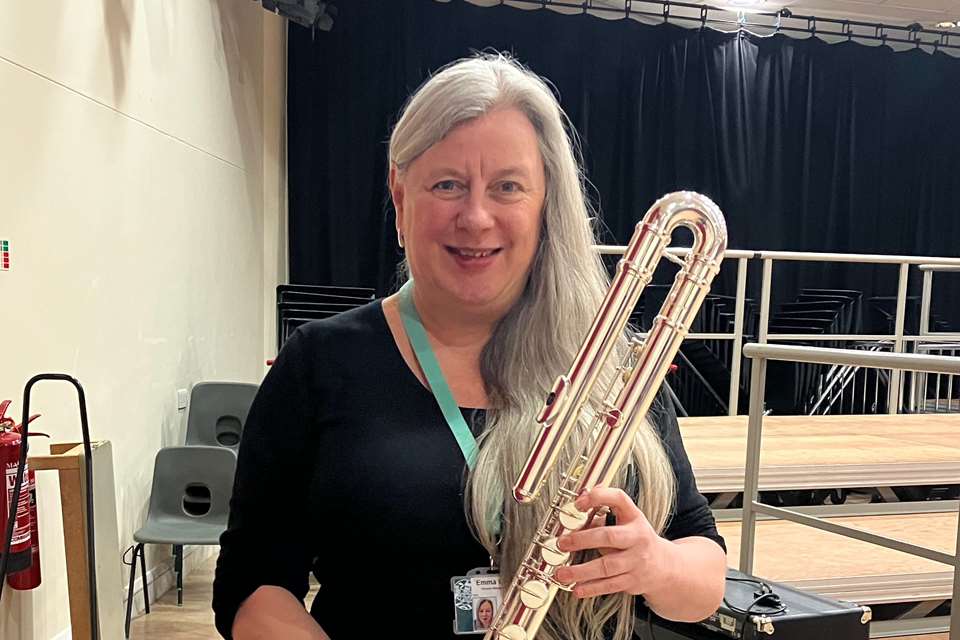Have your say: letters to the Editor March 2024
Friday, March 1, 2024
The following extract is from a letter (23 Jan.) sent to the Minister for Schools, Rt Hon. Damian Hinds MP, from the ISM voicing its concerns over the Music Hub Investment Programme. For the unabridged version visit ism.org/news

Adobe Stock / Funway5400
Rationale for the Hub Investment Programme
Neither the DfE nor ACE have provided an evidence-based rationale for the Hub investment programme for reducing the number of Hub Lead Organisations so drastically. Despite a consultation process where the majority of knowledgeable respondents requested the smallest reduction in the numbers of Hubs, the DfE and ACE ignored these responses and pressed ahead with their clearly preferred option of slashing the numbers to almost a third.
Mr Gibb's response to my letter [dated 8 November] seemed to suggest that the reason was that a new Hub structure was needed to reflect the increase in the number of multi-academy trusts. He asserted that ‘Better strategic collaboration across larger areas will be beneficial for schools, families, and children and young people as it will improve the quality, breadth, and consistency of music education’ but to my knowledge there has been no research carried out to support this assertion and no evidence provided to justify it, in spite of the fact that ACE has been collecting increasingly voluminous data every year from all Hubs for the last 10 years.
We are aware that Freedom of Information requests have been submitted regarding the rationale and have been refused on the grounds of commercial sensitivity. However, with the application process now closed, I can see no reason why the evidence and rationale cannot be provided.
The ISM raised concerns about a lack of meaningful consultation with the sector on the contents of the refreshed NPME in our 2022 report ‘Music: a subject in peril?’.
At no point were all Hubs meaningfully consulted on the contents of the Plan, the increased requirements placed on them as part of the Plan or the proposal to cut the number of Lead Organisations. The first they knew of this was when the Plan was published in June 2022.
Workload
The ISM raised concerns with Mr Gibb regarding the amount of work the investment process had imposed on Hub Leads alongside their ongoing day-to-day work. However, this unacceptable workload seems to be an ongoing feature of the accountability of Hubs to ACE and shows no signs of abating, even after the new Lead Organisations are announced in April 2024.
Hubs are dealing with ever escalating quarterly bureaucracy including more in-depth SMART Objectives and the new Performance Framework, and an ever more detailed Annual Return. All of which detract from the delivery to children and young people. This is at a time when all Hubs will be required to invest more time negotiating and implementing the new Hub structure and new Local Plans for Music Education, time which will take away from delivering provision for children and young people.
For example, the data return next summer will require Hubs to report on a school-by-school basis, completing information on how many schools are implementing non-statutory guidance such as the Model Music Curriculum. What is the point of this exercise? Surely if the Department wants to know how many schools are delivering the Model Music Curriculum or implementing the Plan, it is up to them to collect that data.
Even once the announcements are made, the amount of additional work for consortia and groups of merged Hubs will be significant, given the paperwork required to comply with the next set of ACE-imposed requirements. This work is expected to take place alongside the current workload as Hub Leaders continue to lead the delivery in their current areas.
By asking music Hubs to collate this data there is a strong likelihood that schools will view this as a change in their relationship and additional work caused by Hubs. With the Hubs now reporting the decisions made by schools directly to the DfE, this may well erode schools' trust in Hubs and undermine the possibility of Hubs being able to work productively with them in the future.
The additional workload and extreme pressure placed on the leadership of the Hubs has led to a negative impact on mental health and wellbeing. This is likely to result in experienced and effective Hub leaders retiring or moving on because they have become so disenchanted with what Government and ACE are requiring them to do …
Engagement
Mr Gibb's response stated: ‘While it is true that schools have no statutory obligation to engage with their local Music Hub, it is the Government's ambition that 95% of schools in England utilise the £79 million of funding per year provided for music education by working with their local Hub and accessing the many schemes that they provide to schools and their pupils.’ Where did this figure of 95% come from? The latest ACE data shows 86.8% of Hubs engaging in core roles. How does the DfE expect Hubs to manage such a significant increase in engagement when funding has remained broadly static? This lack of funding is in stark contrast to the ever-increasing workload from ACE and the delivery expectations.
Given the ongoing cost-of-living crisis and the well-documented pressure on school budgets, many Heads are having to prioritise their spending, with music lessons often low on the list. As the recent Ofsted subject report for music stated, ‘There is a clear divide between children and young people whose families can afford to pay for music tuition and those who come from lower socio-economic backgrounds. This inequality of opportunity, highlighted at the time of our last subject report [in 2012], persists.’ The report went on to say, ‘In around half the schools we visited, there were no instrumental or vocal lessons … headteachers explained that they had decided not to offer lessons because, in their view, families could not afford them.’
Funding
The ISM along with Music Mark and the Musician's Union have already highlighted the impact of withdrawing the TPS grant to independent Hubs, but there are additional funding issues facing all Hubs. Local Authority Hubs have to implement unfunded pay rises. Additionally, are often prevented from passing on costs to schools and parents through increased tuition fees, making their own costs higher. Many Hubs are in a catch 22 situation – they know that any increase in costs to schools and parents could result in losing work but not implementing increases means not being able to balance their books. While we understand further information about the TPS will be provided soon, the impact is already being felt. Hubs will be in a position where they will be forced to consider their options. The issue of TPS could not be more urgent.
The government grant to Hubs has not risen with inflation and it has not taken into consideration the increase in the number of pupils in England. The latest figures from the Department show that there were an additional 73,800 in the 2022/23 academic year compared to the previous year and over 895,000 in the last decade. Hubs cannot realistically be expected to meet this increased need with no additional funding.
Simply put, without additional funding, it will be impossible not only for Hubs to meet the requirements of the NPME (which is non-statutory for schools) but in some cases, remain financially viable. The number of pupils needing financial assistance has increased. With less funding per child now, the increase in those eligible for pupil premium creates even more pressure on funding and directly contradicts your government's levelling up agenda. There is a widespread belief that Hubs have been set up to fail from the outset of the refreshed Plan and the investment programme. It is impossible for Hubs to deliver the Plan if they are facing an overly burdensome reporting system, being micro-managed with ever-increasing expectations from ACE and having to find tens of thousands of pounds to cover shortfalls in funding.
At no point has a clear rationale been made for this highly destabilising reorganisation of the Hub structure which will lead to a reduction in Hubs to 43, a reorganisation which the Hubs did not endorse when they were very briefly and inadequately consulted. Furthermore the process itself has been mired in secrecy, poor communication, arbitrary changes to assessments of Hub performance and simply inaccurate statements from those associated with the DfE. Hubs and their leaders have not been treated with any kind of respect or professionalism. The DfE and ACE increasingly want greater control of the work of Hubs, but do not take full responsibility for supporting them, as is evidenced in the situation with TPS.
I ask that you pause the Music Hub Investment Programme and launch an urgent investigation into the process thus far. There are immediate improvements that can and should be made to the way Hubs are treated and I believe that it's only by fully understanding what has gone so badly wrong in this process that Hubs and the DfE can have a more productive relationship in the future.
– Deborah Annetts, CEO, ISM




